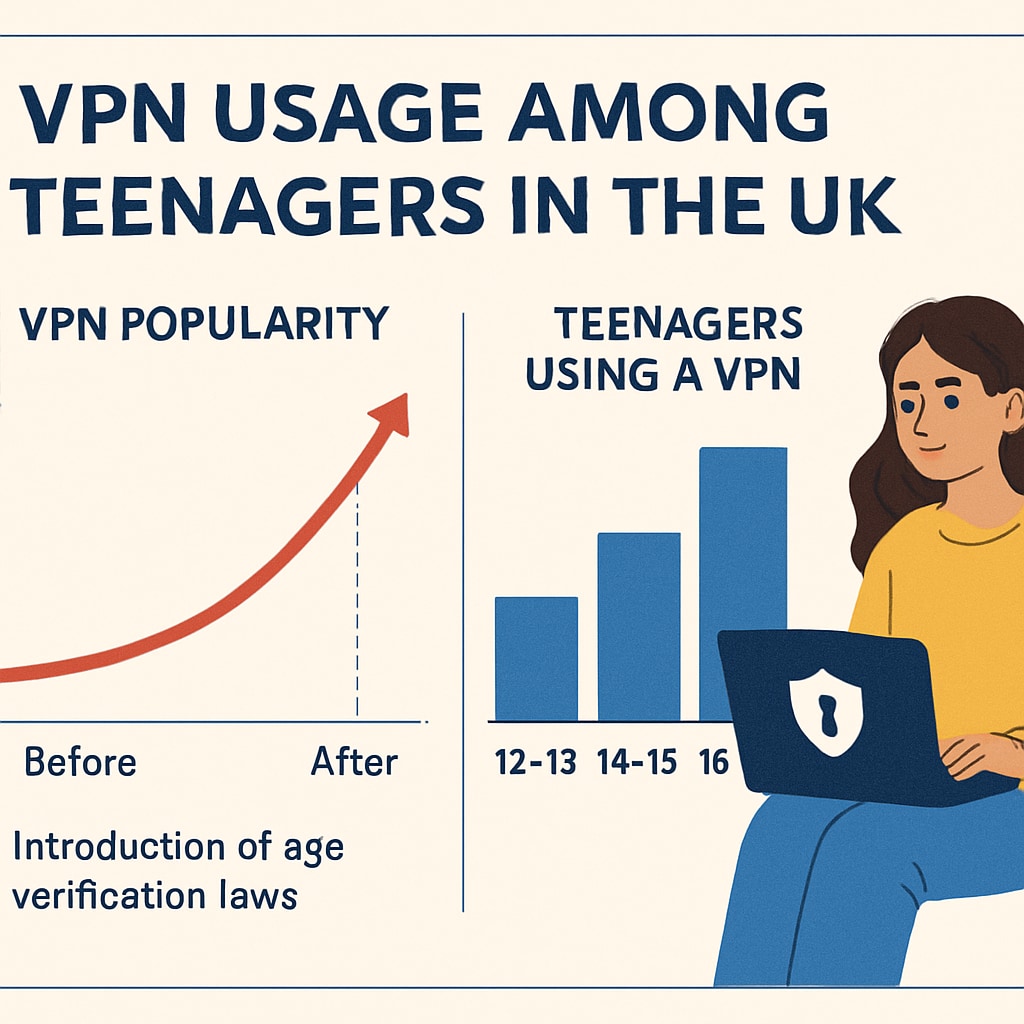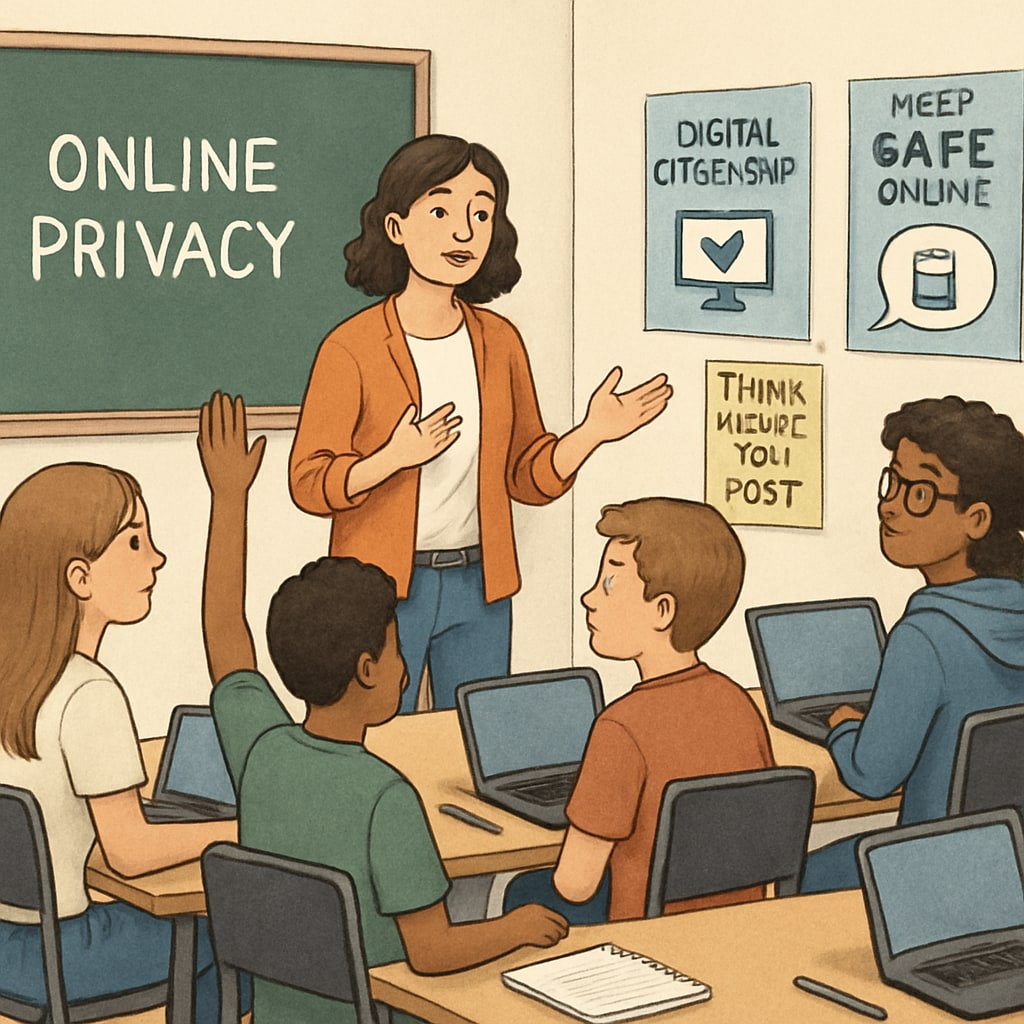The introduction of stringent age verification laws in the UK has sparked significant changes in how young people access internet content. While the legislation intends to shield minors from harmful material, it has inadvertently fueled a surge in VPN (Virtual Private Network) usage. This phenomenon reveals the limitations of purely technical solutions and underscores the need for more comprehensive digital literacy education for teenagers. Instead of merely erecting digital barriers, it’s time to rethink how we equip young users to navigate the internet responsibly.
The Rise of VPN Usage Among Teens
VPNs have become increasingly popular among UK teenagers seeking to circumvent age verification systems. By masking their IP addresses and bypassing geographical restrictions, VPNs allow users to access websites and content otherwise blocked by local regulations. For minors, these tools provide a gateway to unrestricted internet access, but they also expose them to risks such as compromised online privacy and exposure to unregulated content.

What’s particularly concerning is the ease with which VPNs can be downloaded and used. Many free VPN services market themselves as simple solutions for privacy-conscious users, yet they may lack robust security measures, potentially putting teens’ data at risk. This rise in VPN usage among minors raises critical questions about whether technical restrictions like age verification are achieving their intended goals—or inadvertently creating new vulnerabilities.
Why Technical Solutions Alone Are Insufficient
Age verification laws are built on the assumption that restricting access to certain websites will protect youth from harmful content. While the intention is commendable, this approach overlooks a crucial factor: the resourcefulness of teenagers in bypassing digital barriers. For example, VPN usage has skyrocketed as minors find easy ways to sidestep restrictions, effectively rendering these measures less impactful.
Moreover, technical solutions fail to address the root issue—helping young users develop critical thinking skills to assess online content. Blocking access only creates a “forbidden fruit” effect, making restricted content more enticing. Instead of focusing solely on technological enforcement, policymakers and educators should prioritize teaching teens how to evaluate the credibility and safety of online material.
Turning Challenges Into Educational Opportunities
The surge in VPN usage among young people presents an opportunity to rethink digital education. Schools and families can collaborate to create programs that emphasize digital citizenship, teaching teens how to balance freedom and responsibility online. Key areas to focus on include:
- Critical Thinking: Help teens differentiate between credible and harmful online content.
- Privacy Awareness: Educate students about the risks of sharing personal data and using unsecured services like free VPNs.
- Self-Regulation: Encourage young users to develop healthy online habits and avoid over-reliance on circumvention tools.
- Ethical Internet Use: Foster a sense of responsibility regarding how they interact with online communities and resources.

By integrating these lessons into school curricula and parental guidance, we can help teens become more informed and empowered digital citizens. Instead of relying solely on technical barriers, this approach equips them with the tools to navigate the digital world responsibly.
Collaborative Solutions: Schools, Families, and Governments
Addressing the limitations of age verification laws requires a collective effort. Schools can play a central role by incorporating digital literacy programs into their curriculum. Parents, too, must take an active role in guiding their children’s online activities, ensuring that their use of tools like VPNs aligns with ethical and safe practices.
Governments can also contribute by funding nationwide campaigns to promote digital literacy and offering support to educators and families. For example, organizations such as Common Sense Media provide valuable resources for teaching young people about internet safety and responsible online behavior. Collaborative efforts between these stakeholders will ensure that young users are not only protected but also empowered to make responsible choices.
Conclusion: Building Better Digital Citizens
The unintended rise in VPN usage among teens following the implementation of UK age verification laws highlights the need for a more nuanced approach to internet safety. Instead of relying solely on restrictions, we must focus on equipping young people with the skills to navigate the digital world responsibly. By fostering digital literacy through collaborative education initiatives, we can transform this challenge into an opportunity to raise informed, critical, and ethical digital citizens.
As a result, the conversation must shift from building digital walls to creating bridges of knowledge that empower the next generation to thrive online.


